Top Hamas Official With Close Ties To Iran Eliminated In Beirut
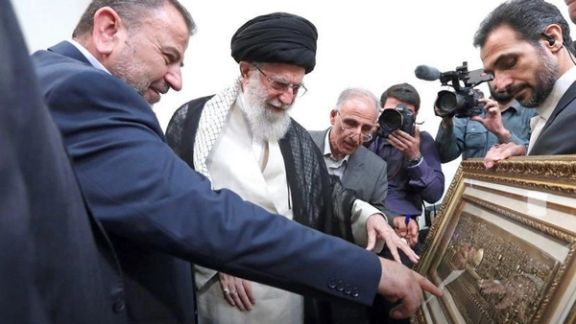
An air strike in Beirut on Tuesday killed Saleh Arouri, a top Hamas official and three others, officials with Hamas and the Lebanese group Hezbollah said.

An air strike in Beirut on Tuesday killed Saleh Arouri, a top Hamas official and three others, officials with Hamas and the Lebanese group Hezbollah said.
Lebanon’s state-run National News Agency said the blast killed four people and was carried out by an Israeli drone. Israeli officials declined to comment.
Arouri is said to have had close ties to the Iranian regime and met Supreme Leader Ali Khamenei and other top officials on several occasions.
If Israel is behind the attack, it could mark a major escalation in the Middle East conflict. Hezbollah leader Sayyed Hassan Nasrallah had earlier vowed to retaliate against any Israeli targeting of Palestinian officials in Lebanon.
Hamas official Bassem Naim confirmed to The Associated Press that Arouri was killed in the blast. A Hezbollah official speaking on condition of anonymity in line with regulations also said Arouri was killed.
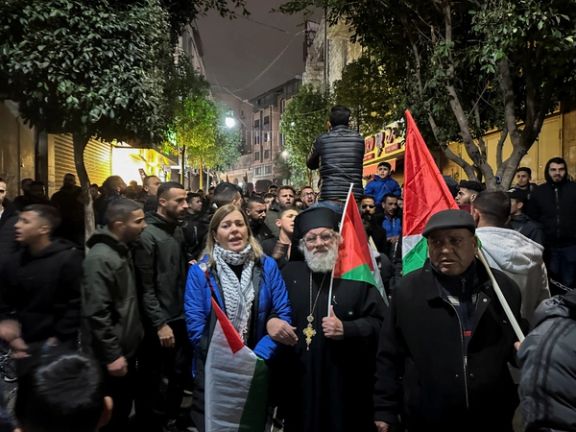
Arouri, one of the founders of Hamas' military wing, had headed the group's presence in the West Bank. Israel's Prime Minister Benjamin Netanyahu had threatened to kill him even before the Hamas-Israel war began on October 7.
The explosion shook Musharafieh, one of the Lebanese capital's southern suburbs, which are a stronghold of the militant Hezbollah group, an ally of Hamas. The explosion caused fire in Hadi Nasrallah street south of Beirut.
The explosion came during more than two months of heavy exchanges of fire between Israeli troops and members of Hezbollah along Lebanon’s southern border.
Since the hostilities between Israel and the Lebanese Hezbollah began on October 8, the fighting has been concentrated a few kilometers from the border but on several occasions Israel’s air force hit Hezbollah targets deeper in Lebanon.
Earlier in the day, Hezbollah said its fighters carried out several attacks along the Lebanon-Israel border targeting Israeli military posts.
(With reporting by The Associated Press)
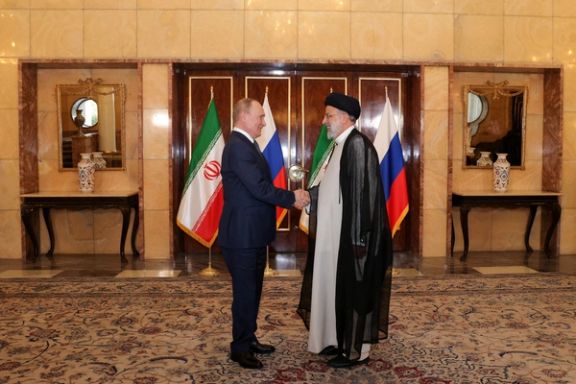
The conservative Iranian daily Jomhouri-e Eslami has issued a warning to government officials cautioning against an over-reliance on Moscow.
The newspaper criticizes Russia's recent alignment with the United Arab Emirates in denying Iran's territorial integrity over the disputed Persian Gulf islands, Greater Tunb, Lesser Tunb, and Abu Musa.
The hardline daily said that "despite claims of friendship" Russia's support for the UAE is "characterized as unanticipated betrayals, prioritizing their interests over diplomatic alliances".
Last month, the sixth Russian-Arab Cooperation Forum in Morocco concluded with a statement reiterating the UAE’s claim over the islands. Moscow had previously voiced its support for UAE’s claim back in July during a joint summit between the Persian Gulf Cooperation Council (GCC) and the Russian Federation.
The piece warns Iranian officials against over-reliance on Moscow, cautioning that Iranian officials might have placed too much trust in Russia.
Russia's relationship with the UAE has flourished in the wake of the war on Ukraine with Russian oligarchs flocking to the small Arab state free of sanctions. However, since the war, Tehran has become ever closer to Moscow, supplying drones used in the war on Ukraine as the two sanctioned nations warm, putting Moscow at the center of the historic conflict.
Historical and geographical records substantiate the longstanding connection of the three Persian Gulf islands to Iran. Despite this, the United Arab Emirates persistently claims ownership, characterizing the situation as an "occupation by the Islamic Republic of Iran."
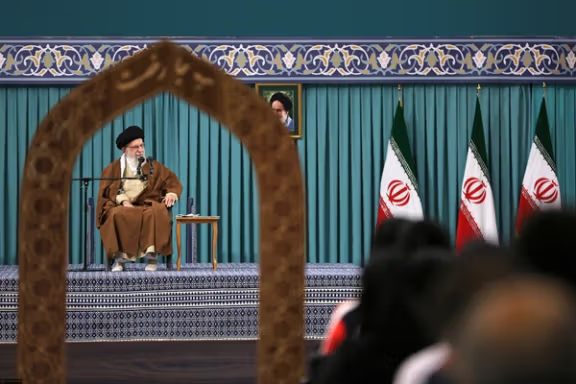
Iran’s 84-year-old ruler Ali Khamenei’s recent claim that God once spoke through him has led to sharp criticism and ridicule in the Iranian social media space.
On December 31, Khamenei was meeting with the family of former IRGC operative Qasem Soleimani, when he suddenly claimed that more than 20 years ago, he was in the company of a group of Revolutionary Guard officers when he started conveying an inspirational message to them.
"The Almighty God was speaking! In fact, it was my tongue, but it was God's words; it was a very extraordinary session,” Khamenei claimed, and added, “It had a significant impact.”
In Islamic theology, Khamenei's assertion that God spoke through him can be considered blasphemous. According to religious teachings, God communicated exclusively with Prophet Mohammed, as emphasized by some Iranian critics in the past two days. In Shiite oral traditions, there is no mention of any occasion where God spoke to Imam Ali, the revered figure in the faith, or to any other saint.
A well-known Iranian literary critic in exile and political commentator, Faraj Sarkouhi wrote on X, "Megalomania, self-centeredness, self-deification, claiming to be a prophet or the voice of God, a sense of exceptional wisdom, and extreme narcissism are considered characteristics of despots at the end of their reigns. Despots gradually fall into the trap of power, oblivious to the fragility of authoritarian power."
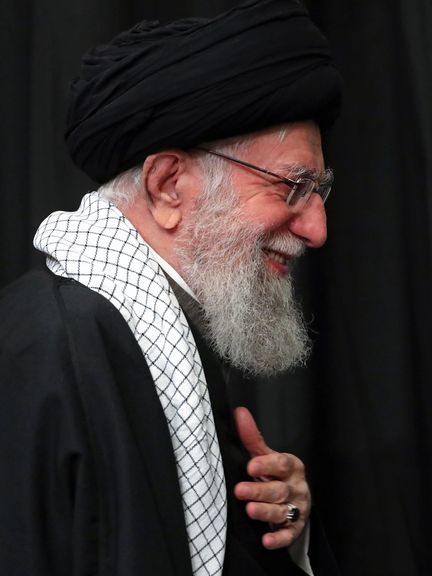
Some social media users also considered Khamenei's statements blasphemous and in contradiction with Islamic teachings. An Iranian social media user commented that “According to the Islamic Penal Code, which is used to suppress anti-government dissent, Khamenei's statements are punishable.”
Another individual wrote on X that "If an ordinary person had uttered the same statement, they would have been executed on charges of blasphemy, insulting sanctities, insulting the Supreme Leader, blasphemy against the Imams, and more."
Iranian experts generally agree that after being selected as Supreme Leader in 1989, Khamenei kept a much lower profile for many years, appearing relatively rational and reasonable in domestic politics. However, as years progressed and he replaced top military and intelligence personnel, he became more authoritarian and even senior ayatollahs began showing reverence to him. He subdued influential figures of the revolutionary years and made Shiite seminaries subservient to him. Another social media user questioned the silence of senior ayatollahs in the face of Khamenei’s unprecedented statement.
With his growing authoritarianism and his regime’s readiness to kill thousands of protesters in the streets and in prisons, Khamenei’s legitimacy has seriously suffered since 2009.
During protests since 2019, he has been the target of angry chants and derogatory insults. People routinely call him a dictator and blame him for the ever-worsening economy and living conditions.
So far, the reaction of officials to the scandal has been limited. Tasnim news website, affiliated with the Revolutionary Guard, published a rebuttal on Tuesday. An official from Imam Khomeini’s foundation wrote in Tasnim that attacks against Khamenei are orchestrated by foreign-based Persian-language media networks. This refers to Iran International, BBC and Voice of America Persian services, Manoto TV based in London and others.
At the same time, Mehdi Fazaeli, a member of the office for the preservation and dissemination of Khamenei's works and one of his close associates, on January 1st, dismissed reports about the illness of the Supreme Leader, labeling it as "psychological operations by the enemies."

The Taliban's foreign minister, Amir Khan Muttaqi, advocated for enhanced economic collaboration during his visit to Iran.
Muttaqi engaged in discussions with economic activists from both Iran and Afghanistan on Tuesday, encouraging Iranian traders “to seize the opportunities present in the Afghan market.”
Muttaqi emphasized Afghanistan's agricultural potential, fertile soil, clean water, and valuable mines, highlighting the mutual benefits of investments from neighboring countries like Iran.
Claiming that the Islamic Emirate swiftly improved security, Muttaqi cited a local trader's observation that before the Taliban, 20% of benefits were spent on security, which has significantly reduced under the new administration.
Expressing determination to transform Afghanistan into a regional transit hub, Muttaqi underscored the country's evolving role in transit and its growing economic centrality.
He also claimed that the government has an impartial stance on religious matters, asserting respect for all individuals, irrespective of Sunni or Shiite affiliations.
However, tensions persist between Iran and the Taliban, particularly regarding water issues. An Iranian parliamentary delegation visited Kabul in August to address concerns about the Taliban obstructing the Helmand River flow, impacting Iran's Sistan and Baluchestan region. The Taliban denies the allegations, intensifying the water crisis dispute.
Recently, critics of the Iranian government have cautioned against its open borders policy, expressing concerns about a potential hidden agenda. In response, hardliners accuse critics of fueling "Afghanophobia" amidst rising anti-Afghan sentiments on social media and instances of violence against immigrants.
Some critics speculate that authorities might be encouraging illegal Afghan immigration to address population decline or even to bolster the military by recruiting young Shiite Hazara Afghans. The situation reflects the complexities and challenges arising from the evolving relationship between Iran and Afghanistan.
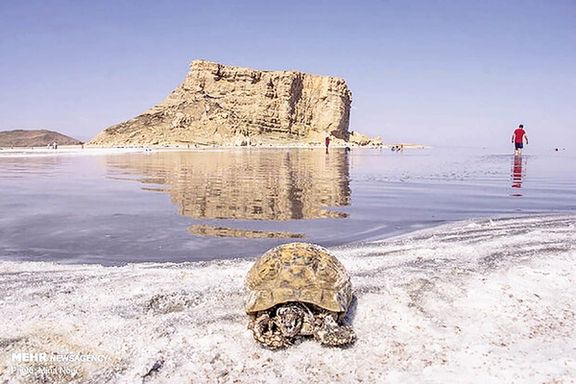
Iran’s Environment Department has denied any involvement of the Chinese in lithium extraction from Lake Urmia.
This follows the circulation of images on social media depicting trucks on the desiccated lakebed. The Director of Environmental Protection in West Azarbaijan, Saeed Shahand, has claimed that the activities in question solely pertain to “salt extraction, not lithium.”
Earlier reports had said that Chinese companies were acquiring brine from Lake Urmia with the aim of obtaining valuable lithium, which can be used to support the country’s nuclear program.
However, officials allege that the lake lacks lithium, underscoring the ongoing authorized extraction of salt from specific areas.
Shahand affirmed that the extraction of salt from Lake Urmia has been a long-standing practice, spanning years, claiming that it has not led to any adverse environmental consequences in authorized areas.
Researchers have sounded a cautionary note, warning about the potential repercussions of salt extraction and disturbance to the lakebed. Pertinent questions have been raised regarding research into the impact of salt compounds in Lake Urmia on plants, humans, and agricultural fields.
The ongoing drying of Lake Urmia, once the region’s largest lake, is causing growing concern among environmental experts who fear its far-reaching effects on various regions of Iran in terms of both environmental and human impacts.
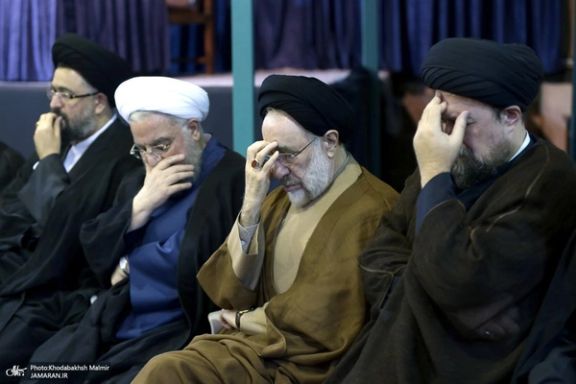
A leader of Iran's Reform Front, an umbrella organization of reformist parties and groups says only 7 percent of Iranians approve of the country's current situation.
Mohsen Armin, the front's vice chairman has quoted the results of an opinion poll conducted by ISPA of the government-owned Iranian Students New Agency (ISNA) and said 48 percent of Iranians support reforms and another 45 percent want far-reaching changes. In the context of Islamic Republic's political jargon, the latter group are possibly those who want a regime change.
Armin, speaking at a conference in Esfahan entitled "Iran, Reformists, and National Interests," stated that reforms in Iran are currently in a state of isolation. He elaborated that "The country is so disorganized that other political groups are also confused and do not know a way out of the current political impasse."
He said, "our mistake during the 1979 Islamic revolution was that we thought the Shah was the problem. But the real problem was the despotic regime. We thought that by replacing the Shah the problem will be solved. That is how we lost a precious opportunity to improve the political situation in Iran."
Armin emphasized that there has been a misconception in Iran that combating Western civilization is a prerequisite for Islamizing society. This belief has given rise to notions such as the imminent downfall of Western civilization, a stance that aligns with creating an Islamic society. Support for Russia in the Ukraine conflict and reluctance to finalize nuclear agreements with the West are byproducts of this ideology. Consequently, policies like the resistance economy and opposition to maintaining ties with advanced Western nations have emerged to promote Iran's development.
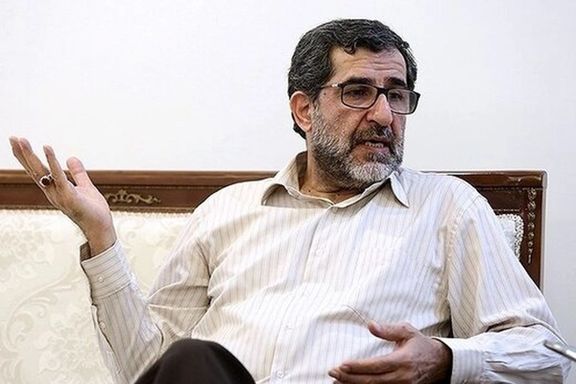
"Nonetheless, when survival becomes the regime's main objective, even ideology ceases to be a priority," Armin said, adding that the strategy of survival calls for barring all those who object to these policies by any form of political activity. He further said that the strategy of survival has led to the emergence of a system that is incapable of solving the country's problems and preventing systematic corruption. He also pointed out that the regime has failed to convince the public about its strategy while it also refuses to listen to reformist ideas that might help it.
Elsewhere, but along the same line, Iranian academic Bijan Abdolkarimi has warned that the underprivileged people in Iran are facing a death and life issue. He said in an interview with Etemad Online that there is a possibility for social upheavals in Iran. He explained that the middle class in Iran has been experiencing a process of decline and many middle-class citizens are now considered low-income as their purchasing power has shrunk.
Iran has been experiencing an annual inflation rate of at least 40 percent in the past three years, and the national currency has lost its value 12-fold since 2018.
Abdolkarimi pointed out that while the middle class has been losing its dreams and sees no bright prospect ahead, family members of some regime officials, who talk about confrontation with the United States, live in America. The latter group do not really believe in the revolutionary narrative but hypocritically defend the revolutionary "values," the academic added.
He pointed out that Iranians are not interested in taking part in the upcoming parliamentary elections because they believe their participation cannot change the country's situation. At the same time, a force from within the government has been exerting pressures on the regime to follow a strategy of political purification that is intended to lead to the creation an all-conservative ruling system.
He said the Islamic revolution has not been able to offer welfare to nation during the past four decades and it is not likely to find that capability anytime soon.
Meanwhile, former President Hassan Rouhani has said in a meeting with his former aides and cabinet minister that the country's only way out of the current political impasse is to start reforms. Rouhani further claimed that the people will take part in the election if they feel that it can make a difference.
Many political figures in Iran, who are considered regime insiders, including former reformist President Mohammad Khatami have said that it appears the Iranian regime can no longer be reformed.